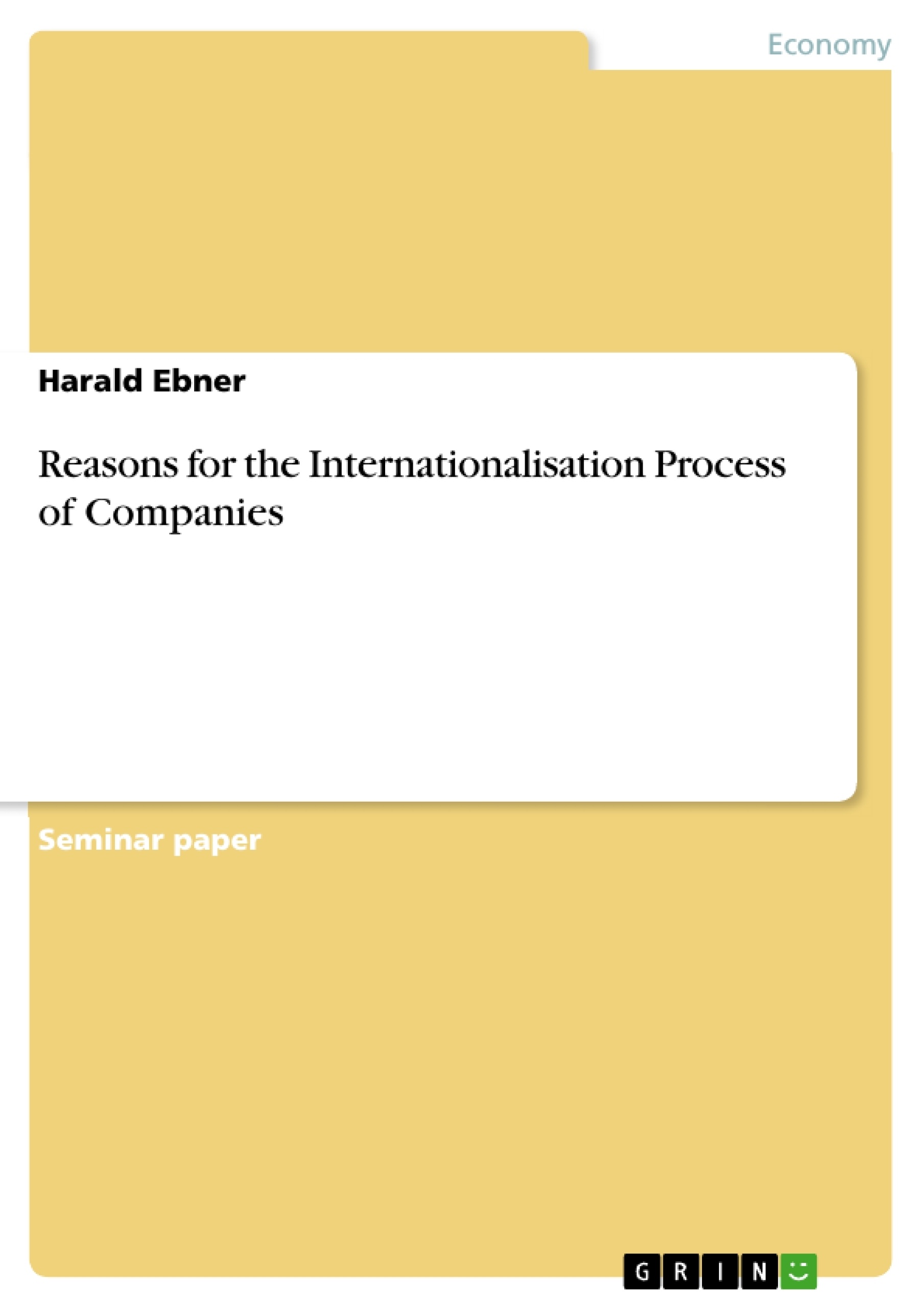Reasons for the Internationalisation Process of Companies
I.) Introduction
"Global interdependence is pervasive. It is not only political and military….[but] also environmental…. Perhaps the most important aspect of interdependence however is economic." (Terpstra, 1993, Preface)
Today more and more firms operate internationally and in some cases even globally. In almost all major economies of the world, the significance of domestic and/or foreign-based transnational corporations is increasing. Such corporations, directly or indirectly, account for a large part of world trade in goods and services (cf. Nilsson, Dicken 1996 p.1).
Attempts to theorise such international developments are widespread; therefore, there is no such thing as a "universal" theory. However, the emphasis of most theories tends to be on how businesses should internationalise rather than on why they should do so. Most contributions in literature focus on strategies and structures of international firms but do not explain the reasons of internationalisation.
The main aim of this essay is therefore to give an outline of the reasons why companies choose to go international. Using only relevant theories and different examples from business, it shall be demonstrated that there is not only "one" motive for companies to choose international expansion but that there is a variety of causes depending on the respective internal and external environment of the different companies.
In the following, under II.) there will be an overview of different reasons for companies to choose international expansion; these reasons will be substantiated by different statements and theories from literature and in each case illustrated by relevant examples. Under III.) finally, there will be a conclusion. The expositions of II.) will be analysed and a prospect into the future of globalisation will be made.
[...]
Inhaltsverzeichnis (Table of Contents)
- I.) Introduction
- II.) Reasons for internationalisation in theory and examples
- The “network approach”
- Increasing competition from foreign firms
- Changes of the economic climate in the world
- Cost-effective production and international outsourcing
- Economies of scale
- New technologies and media, especially the Internet
- III.) Conclusion
Zielsetzung und Themenschwerpunkte (Objectives and Key Themes)
The essay aims to provide an overview of the reasons why companies choose to go international. It uses relevant theories and business examples to demonstrate that there is a variety of causes depending on the internal and external environment of each company.
- The importance of staying competitive in the international market
- The influence of foreign competition on domestic markets
- The impact of global economic changes on internationalization
- Cost reduction and international outsourcing as motivators for international expansion
- The role of new technologies and media in facilitating international business activities
Zusammenfassung der Kapitel (Chapter Summaries)
- Introduction: This chapter introduces the concept of global interdependence and discusses the increasing significance of multinational corporations in the global economy. It highlights the lack of a universal theory for internationalization and emphasizes the importance of understanding the reasons behind companies' decisions to go international.
- Reasons for internationalisation in theory and examples: This chapter explores various theoretical perspectives on the reasons for internationalization, including the "network approach," competition from foreign firms, changes in the economic climate, cost-effective production, economies of scale, and the impact of new technologies and media. Each section is accompanied by relevant business examples to illustrate the practical implications of these theoretical frameworks.
Schlüsselwörter (Keywords)
The key terms and concepts explored in this essay include internationalization, global interdependence, multinational corporations, network approach, foreign competition, economic climate, cost-effective production, international outsourcing, economies of scale, new technologies, and the Internet.
- Quote paper
- Harald Ebner (Author), 2001, Reasons for the Internationalisation Process of Companies, Munich, GRIN Verlag, https://www.grin.com/document/102543




